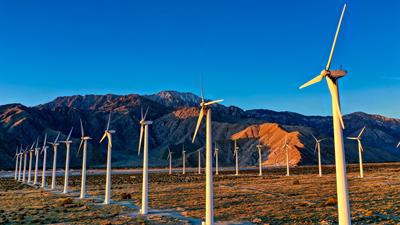Manuscript Deadline: June 24, 2021

Description of Research Topic
This Research Topic is part of a series celebrating 10 years of Water-Food-Energy (WEF) Nexus research and implementation. You can view the other collections in the series here:
- Advances in W-E-F Nexus Approaches from the Global South: from Theory to Practice
- Impact of Climate Variability and Change on the Water-Energy-Food Nexus
- Water-Energy-Food Nexus: Role of Water Quality in Land Use/Land Cover Transformations in River Basins
The Water-Energy-Food nexus (WEF nexus) is a one of the highly discussed approaches aimed toward improving the sustainability and resilience of resource systems. The WEF nexus debate has emphasized the importance of better understanding the interconnected resource systems and the need for integrated management paradigms. After a decade of highlighting the need for understanding the tight interconnections between water, energy, and food securities (e.g. the 2011 Bonn Conference and World Economic Forum, 2011), a body of academic literature has developed with a focus on developing decision support tools, models, simulations and case studies that provided valuable insights on the need for integrative resource planning, governance and policy-making across WEF sectors. Much can still be explored in order to further enrich this debate in terms of intermediate insights, salient innovations, cross-country or regional analyses, and the wider implications for resource security as well as the global sustainability agenda.
This Research Topic theme aims to:
- synthesize key lessons learned from the literature developed in the past decade;
- outline remaining challenges that need to be addressed as we move forward;
- expand the current WEF nexus literature through highlighting innovative frameworks and cross-disciplinary approaches that address complex interconnected WEF nexus challenges;
- advance considerations related to regional diversity and (cross-)regional case studies (e.g. cross-country studies, large cases, studies with a regional development focus, etc.);
- provide critical reviews or policy- and development-relevant perspectives combining physical and social sciences and incorporating stakeholder engagement.
Contributions are welcome from scientists and experts from different fields/sectors and regions while the papers should target at least one relevant sub-nexus. Contributions targeting WEF nexus security debates (risks, threats, disruptions, resilience, securitization, etc.) or development debates (equity, access, transitions, political economy etc.) are encouraged. Neglected or high-relevance issues in the concept and the implementation of the WEF nexus debate are also encouraged from both the developing and the developed regions. A particular encouragement should be given to promotion, evolution and implementation of the nexus approach in the least developed countries. Ultimately, this collection seeks to revitalize the WEF nexus debate by highlighting its relevance and concrete merits for achieving resource securities and the wider sustainable development agenda (including the climate change and Sustainable Development Goals (SDGs) agendas).
Keywords: Water-Energy-Food Nexus, Resource Security, Regional Studies, Environmental Policy, Sustainability Agenda, Sustainable Development
Important Note: All contributions to this Research Topic must be within the scope of the section and journal to which they are submitted, as defined in their mission statements. Frontiers reserves the right to guide an out-of-scope manuscript to a more suitable section or journal at any stage of peer review.
Top Editors
- Mohammad Al-Saidi, Qatar University
- Bassel Daher, Texas A&M Energy Institute
- Nadir A. Elagib, University of Cologne
For further information, click here.
